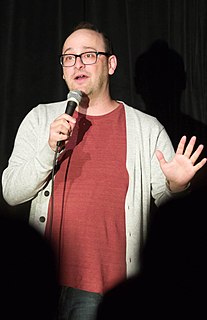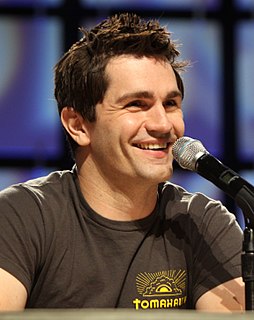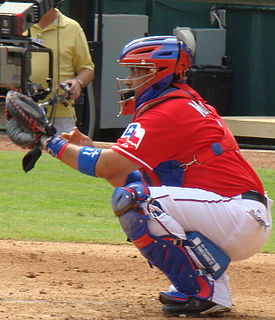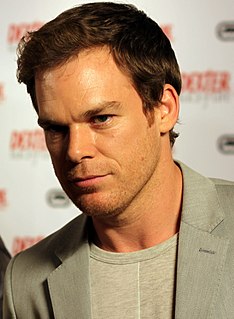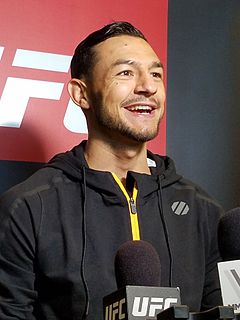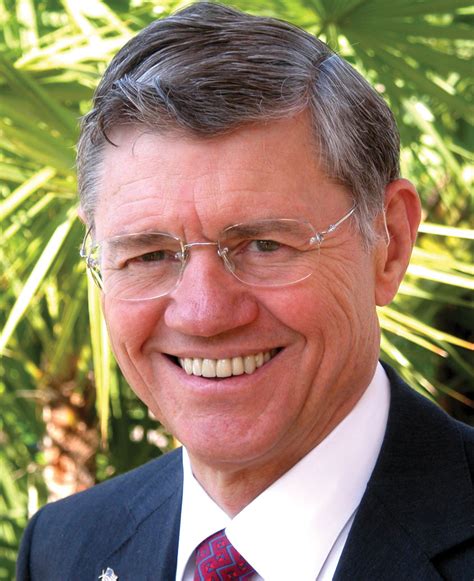A Quote by Joe Carnahan
Think about a guy like Bob Mitchum, with his kind of chest gut not defining itself one way or the other. Was there anybody tougher? Lee Marvin was a marine sniper during the Second World War. They had this sense of themselves, and they had this product of being a man in a masculine way.
Related Quotes
In my second year of Harvard Divinity School, where I was studying to be a minister like my father, I met a guy named Robert Cox, who had been the editor of the Buenos Aires Herald during the Dirty War in Argentina. Bob used to print the names of those who had been disappeared the day before, above the fold in his newspaper. It was a kind of an awakening to me to see what great journalism can and should do.
A v-neck T-shirt is the manliest of all upper-body garments. The defining feature of the style is a plummeting neckline that we normally associate with women's fashion, but when worn by a guy, it basically says, 'Here is a pie slice of chest hair that forms an arrow to my gut.' The deeper the 'V,' the more masculine the shirt.
One thing I think is interesting is the Jedi in the prequels are supposed to be peacekeepers, and certainly had a very artful way of making war. They had an artful way of defending themselves and inciting violence, really. You find that the Jedi who survived all of that had a much more simpler way of going about things.
The classic war movies of the post-Vietnam era have generally taken on grand, philosophical themes: the meaninglessness of war, the grinding down of man by the machine - the machine being war itself, represented by someone like Gunnery Sergeant Hartman in 'Full Metal Jacket,' the sadistic marine who turns his boys into instruments of death.
Lee Marvin was there at the same time, and I knew obviously it was his movie [Emperor Of The North], and Ernie Borgnine was playing the other part in the movie.I met Marvin there at wardrobe, and he said, "What are you doing for lunch?" I said, "Nothing." He said, "C'mon with me!" And he took me to the commissary. I walked into the commissary with Lee Marvin at 20th Century Fox, and he introduced me to people. He said, "This's Keith Carradine. We're doin' this movie together." He was so cool. I mean, my God.
And when you are operating within your style, which is your world, which you operate in, then it also would make sense to you. Now, whether it makes sense to anybody outside is besides the point really. You just do it and then you find that other people kind of begin to relate to it and allow themselves to get into your way of thinking about things.
I think that one thing that I've prided myself on is that tough situations make for tougher people and that was one of my goals as well getting into this sport, I wanted to be a tougher human. I wanted to be a tougher man and basically when I had kids I'd be able to be like a superhero to them, and I feel like I'm accomplishing that.
Obviously I've been reading Kafka for a long long time, since I was really young, and even before I ever read him I knew who he was. I had this weird sense that he was some kind of family. Like Uncle Kafka. Now I really think of him that way, the way we think about an uncle who opened up some path for being in a family that otherwise wouldn't have existed. I think of him that way as a writer and a familial figure.
Sometimes, in the trenches, you get the sense of something, ancient. One trench we held, it had skulls in the side, embedded, like mushrooms. It was actually easier to believe they were men from Marlborough's army, than to think they'd been alive a year ago. It was as if all the other wars had distilled themselves into this war, and that made it something you almost can't challenge. It's like a very deep voice, saying; 'Run along, little man, be glad you've survived


